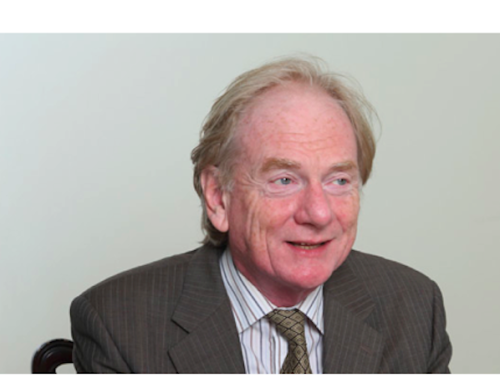Successful Conclusion to the Second Specialization Course in Timeshare
Training is essential to the development of the tourism industry, and with this in mind AMDETUR launched its second Specialization Course in Timeshare, which was available in both online and classroom settings in Mexico City. The course was once again a resounding success. Its basic goal was to describe and analyze the history, environment, structure and operation of the timeshare industry in order to help companies, developers, sellers and providers of related services to make the best decisions.
It is our practice to publish profiles, photographs and professional information on lecturers on our web page, along with conference videos available through a special link, to participants who paid for online or classroom participation in the course.
At the end of each lecture we also conduct a student satisfaction survey, and the responses have been highly positive both from participants and from lecturers, who gave us high marks for innovation in the area of training. This makes the course a strong generator of resources of this institution.
The following are just some of the highlights of the most recent course:
The unparalleled experience and know-how of John McCarthy in the field of domestic and international tourism were clear in his presentation on “Types of Vacation Ownership,” part of Module 1, Tourism and Vacation Ownership, in the Tourism-Oriented Real Estate segment. Never before in history have the importance of timeshare and its comparative significance in Mexico and the United States been so profusely and thoroughly discussed as they were by the former National Chairman of the Board of AMDETUR, who once again demonstrated his ability to communicate his passion for the field to those who attended.
The otherwise arid and difficult theme of tax aspects was splendidly explained by Aldo Iván Saldaña Vivanco, partner in PricewaterhouseCoopers, who gave a lecture entitled “Tax Aspects of Timesharing.” Mr. Saldaña, who is a tax expert and contributor to a variety of specialized publications, spoke knowledgably and accessibly about issues such as the various forms of occupancy and statistics about their use; the supply of Timeshare properties in Mexico; tourist preferences; definitions and explanations of technical terminology on taxes, laws, regulations and principles, as well as the general tax climate for the industry.
Another crucial aspect for companies in any industry is finance. Developing the right model to obtain a satisfactory return on cash flow and on capital, and the importance of interest income in collection strategies, were the core themes addressed by the brilliant Executive Director of PowerPeople, Luis Manuel Rivera García. Mr. Rivera is also author of La Magia de las Finanzas en la Hoteleria (The Magic of Finance in the Hospitality Industry) (Editorial Porrúa, 2013) and is a top supplier of talent for the hotel industry and consultant to many major firms. His topic was “Financial Models and Profitability,” on which he spoke clearly and convincingly, presenting some practical exercises to make the subject matter more understandable.
The dream of every entrepreneur, “Successful Business Models,” was explained in a simple, engaging and well-documented manner by Alejandro Recamier, Commercial Director of Regional Projects for Grupo Posadas. Through a series of extraordinary illustrations, Mr. Recamier tapped in to the aspirations and dreams of those present in person and those participating in the course online, beginning with a detailed explanation of what a tourist resort means, its characteristics, service companies, dimensions, vocation, market (in all variables), membership and the location of some resort developers.
In a lively joint presentation entitled “Exchange Companies,” Interval International, ICE, DAE, RCI and Worldpass offered a smorgasbord of know-how, experiences, practices, models focuses and viewpoints, part of Module 2, “Industry Structure.” As explained by some of the top exchange organizations in the world, issues ranging from global and regional vacation ownership to structural, economic, political and social factors that support the industry, as well as the goals and business models of various related institutions, commercial, administrative and service aspects required in order to apply knowledge and techniques to benefit stakeholders, were all made eminently clear in this segment.
The international climate for the timeshare industry was the subject of a minute and thorough analysis by two of the world’s leading companies in the field, also as part of Module 2, “Industry Structure.” This presentation had to do with international associations, and was led by the American Resort Development Association (ARDA), which promotes the growth and development of the Timeshare industry in a variety of capacities, and represents vacation ownership and resource development industries with almost a thousand corporate members. Its mission is to promote extraordinary vacation services, and its membership extends to the United States, Canada, Mexico, Europe and Australia. This was the backbone of the industry structure module, and was considered of great use to participants.
Human Talent Management, another essential and basic topics for any economic unit in Mexico or elsewhere in the world, was masterfully and completely covered by Eduardo Szymanski Mantey, Sub Director of Human Capital Grupo Posadas discussed human resources, structures and profiles; recruitment and selection; training; retention and compensation models. Edith Ramírez Bustos, Regional Manager of Human Capital at the same company, touched on the topic of outsourcing and payment firms. Each sub-topic, with its specific examples and performance models, was brilliantly explained, so that participants gained basic information on what, when, where, why and how to take advantage of human capital to benefit customers, clients, partners, visitors, tourists, and the resort itself.
The ever-smiling Javier Robles, Corporate Director of Marketing at Vida Vacations gave a clear and simply explained presentation on the Marketing, Sales and Verification processes as they apply to the Timeshare industry, based on his own extensive experience and drawing on examples from the daily activities human relations professional carry out in pursuit of their goals. His lecture was part of Module 3, “Business Models.”
Managing and benefiting from modernity, its effects and technological future, were part of a lecture on “Social Networks and Digital Reputation,” given by widely respected conference speaker Iván Palomera Pedroza, who is CEO and founder of Smartup. In his presentation he offered a detailed discussion of the spirit, use, and characteristics of the social networks, their de facto power, and the concept of people as “communications media,” including the use and risks of social networks.
The grand finale of the Specialization Course in Timeshare was provided by Professor Francisco Madrid Flores, head of the Tourism and Gastronomy School of Anáhuac University, who spoke on trends in the tourism, offering an experienced, first-hand, theoretic and practical overview of the industry, with a three part focus: “Climate, Present Perspectives and Trends.” His lecture encompassed the economic, political, social and technological challenges of the industry, the size of its market and its evolution to date, with revealing statistics on the domestic market on its own and in comparison to others in the world, and on trends in the market from a geographic and economic standpoint.
Looking ahead to 2030, Professor Madrid predicted a redistribution of tourist flows, because, he reasoned “the appetite for travel is never destroyed, it simply undergoes changes and transformations.” In the future, he envisioned “tourism in the age of the collaborative economy,” in which, he said “competition will be fierce.” It is important to bear in mind, he reminded participants, that “we are what we are worth, and we are worth what the client perceives.” We need to give people reasons to travel, he argued, and he offered an extraordinary explanation of these reasons based on the characteristics of future tourists in terms of age, condition and the personalized attention they will require.
This concluded the second Specialization Course in Timeshare which took place over three weeks in the months of September, October and November. Professor Madrid, who offers the academic endorsement of the course, also gave its official closing remarks.





